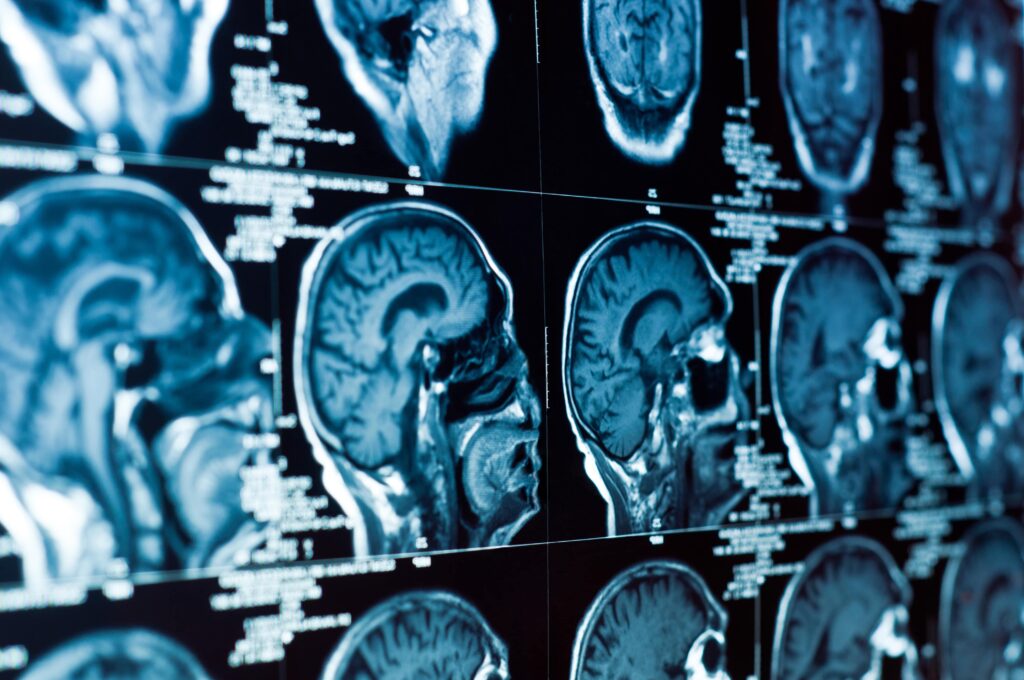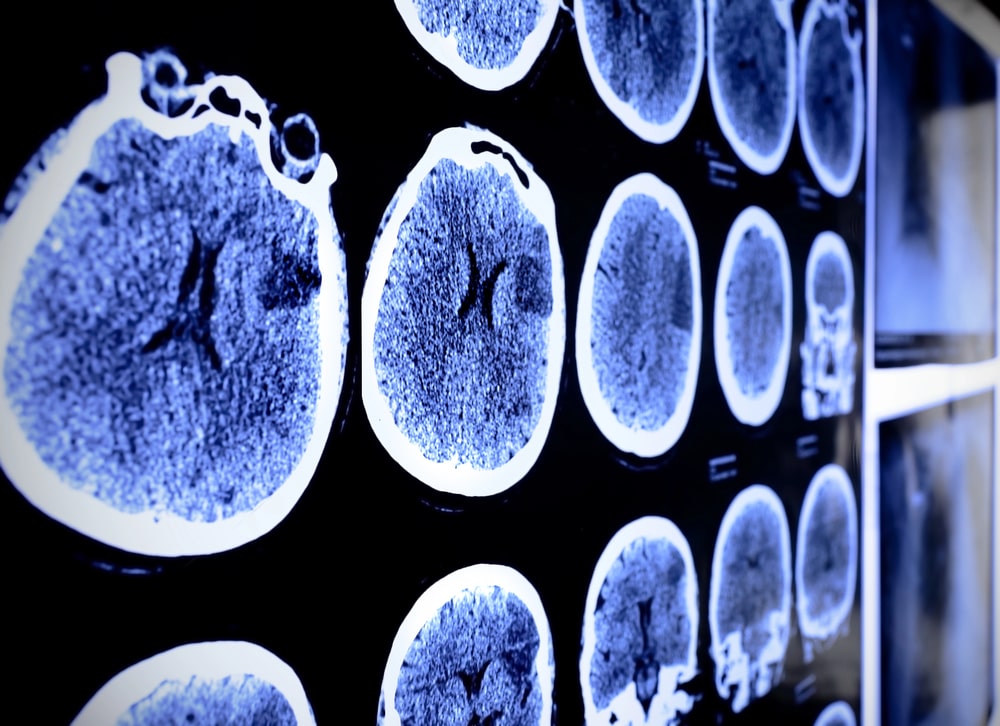
Our Towson, MD Brain Injury Lawyer Helps You After Life-Changing Brain Damage
Brain injuries are complex, with non-linear recovery and no guarantee that the victim will ever be the same as they were. People who suffer a moderate to severe brain injury may have permanent personality changes, experience the sudden onset of dementia or cognitive decline, and may have difficulty with physical movements. While some people may recover enough to remain independent, others won’t and require care in a nursing home or memory care facility. The impact of a brain injury affects the victim’s entire family, and the economic burdens are significant. Our Towson, MD brain injury lawyer can help you and your family secure the compensation you deserve to pay for your medical care and other needs.
Brain injuries can occur in many different ways. Our personal injury firm has extensive resources to pursue a claim for compensation, no matter how your injury was caused. Our attorneys have decades of combined experience litigating cases involving all of the common (and even uncommon) ways that a brain injury can occur, and we use this experience to your benefit. Call Parker, Pallet, Slezak & Russell, LLC, today for a free consultation.
Types Of Brain Injury Cases We Handle
There are three types of brain injuries:
- Blunt trauma, in which the victim receives a blow to the head, causing the brain to collide with the interior of the skull and damaging the tissue
- Penetrative trauma, in which an object penetrates the skull and damages the brain tissue directly
- Anoxic or hypoxic, or deprivation of oxygen, which could occur through drowning, medical malpractice, or malicious intent
Someone can suffer a brain injury in one of the following ways; many of these causes are avoidable accidents or due directly to someone else’s negligence:
- Car, motorcycle, and semi-truck crashes
- Medical malpractice, including anesthesia errors and giving incorrect medication
- Defective or malfunctioning consumer products, like sports gear or appliances
- Falls, which can happen at work, because of nursing home neglect, or a premises liability case like a slip-and-fall claim
- Malicious intent, like assault or abuse (like shaken baby syndrome). Someone who deliberately harms another could face criminal charges as well as civil action
- Concussive force, which can happen in some workplaces, like construction, manufacturing, or oil and gas, including offshore wind farm work
Regardless of the direct cause of your brain injury, our attorneys have the exercise to handle your claim. As skilled personal injury lawyers, we handle cases like those above regularly and understand how to successfully prove negligence in each type of case.
Achieving Fair Compensation In A Brain Injury Claim
Our firm regularly employs medical and economic experts to help us properly value cases like yours. Expert medical witnesses testify about how the brain injury was caused, what treatment is required, and the long-term chances of recovery. Our economic experts value the impact of your brain damage on your ability to earn a living independently and how your injuries have impacted your ability to earn a living. Our Towson brain injury lawyer wants to ensure that your settlement is sufficient to cover all eventualities.
At Parker, Pallet, Slezak & Russell, LLC, we have the experience you need to handle the toughest brain injury claim. Contact our firm today for a free consultation.

Most Common Types Of Brain Injuries
A Towson, MD brain injury lawyer knows that one of the most common causes of brain injuries is preventable accidents. Brain injuries can vary in severity, ranging from mild concussions to life-threatening conditions. The brain is an incredibly complex and delicate organ, and even minor trauma can have serious consequences. Understanding the most common types of brain injuries can help with both prevention and treatment. Below are three of the most prevalent types of brain injuries. If you or a loved one has been injured, call Parker, Pallet, Slezak & Russell, LLC
Concussions
A concussion is the most common type of brain injury, typically caused by a blow to the head, a fall, or any sudden jolt that shakes the brain inside the skull. Concussions are considered mild brain injuries but should never be taken lightly. Although the symptoms of a concussion may not appear immediately, they can manifest over time and may include:
- Headache or pressure in the head
- Dizziness or balance problems
- Nausea or vomiting
- Memory loss or confusion
- Sensitivity to light or noise
- Fatigue or difficulty concentrating
The main issue with concussions is that they often involve a temporary disruption of normal brain function without visible damage. Unlike more severe brain injuries, concussions don’t always show up on imaging scans, such as CT or MRI scans, which makes diagnosing them challenging. However, the impact of a concussion can still be serious, especially if someone suffers multiple concussions or doesn’t allow the brain to fully heal before returning to normal activities.
Repeated concussions or improper recovery can lead to chronic traumatic encephalopathy (CTE), a progressive brain condition that affects cognitive function and can lead to mood changes, memory problems, and behavioral issues. This condition is particularly concerning for athletes involved in contact sports like football, boxing, and soccer.
It is important to note that even a minor concussion can result in the victim suffering losses, including medical bills and lost wages. A Towson brain injury lawyer can help recover those losses.
Contusions
A contusion is a bruise on the brain caused by a direct impact or blow to the head. Unlike a concussion, which involves a temporary disruption of brain function, a contusion can result in physical damage to brain tissue. The severity of a contusion can vary based on the force of the impact and the location of the injury. Contusions are typically classified as mild, moderate, or severe, depending on the extent of the damage.
Contusions may cause symptoms such as:
- Loss of consciousness
- Severe headaches
- Confusion or disorientation
- Nausea or vomiting
- Weakness or numbness in limbs
- Speech or vision problems
In some cases, contusions can lead to bleeding in or around the brain, which can result in further complications. When a contusion occurs, blood vessels in the brain may rupture, leading to a hematoma (a localized collection of blood). Depending on the size and location of the contusion and hematoma, this could lead to swelling, pressure on the brain, and more severe complications such as permanent brain damage, seizures, or even death.
Treatment for a brain contusion depends on the severity and may include medication to manage swelling and bleeding, as well as surgery in extreme cases to remove a blood clot or repair damaged tissue. Rest and a gradual return to normal activity are critical for recovery.
Traumatic Brain Injury (TBI)
A traumatic brain injury (TBI) is a more severe form of brain injury caused by a blow, jolt, or penetration of the skull, resulting in permanent damage to the brain. TBIs can range from mild to severe and may have lasting effects depending on the location and extent of the injury. There are two main categories of TBI:
- Closed Head Injury: This occurs when the head is struck, but the skull remains intact. The brain can still move within the skull, leading to bruising, swelling, or tearing of the brain tissue.
- Penetrating Head Injury: In this case, an object (such as a bullet or sharp debris) penetrates the skull and directly damages the brain tissue. This type of injury is often more severe and can result in immediate and extensive brain damage.
TBI symptoms vary greatly depending on the severity of the injury and may include:
- Loss of consciousness (from a few minutes to several hours)
- Memory loss or difficulty concentrating
- Slurred speech
- Motor problems, such as difficulty walking or coordination issues
- Seizures or convulsions
- Personality changes or mood swings
- Coma in severe cases
Severe TBIs can result in long-term complications such as cognitive impairment, physical disability, emotional changes, and even loss of independence. The long-term effects of TBI can affect a person’s ability to work, interact socially, or care for themselves. It is one of the leading causes of death and disability worldwide, especially in individuals under the age of 45.
Treatment for TBI varies depending on the severity of the injury. Mild cases may require only rest and observation, while more severe cases may require surgery to repair fractures, remove blood clots, or alleviate pressure on the brain. Rehabilitation, including physical therapy, occupational therapy, and speech therapy, may be necessary to help the individual recover or adapt to permanent changes in their abilities.
Let Our Brain Injury Firm Help
Brain injuries can have significant and lasting consequences, depending on their type and severity. If you or a loved one has been injured, a Towson brain injury lawyer from Parker, Pallet, Slezak & Russell, LLC can help you get the financial compensation you deserve. Call our office for a free case evaluation.

What To Do If Someone You Care About Has A Brain Injury
If someone you love has suffered a brain injury, the situation can be overwhelming. Contacting a compassionate Towson, MD brain injury lawyer and taking the right steps early can make a significant difference in their recovery and legal options. Here’s what to do:
- Seek Immediate Medical Attention
Brain injuries may not always be immediately apparent. Even if the person seems fine, symptoms can appear hours or days later. Get medical help right away to assess the extent of the injury and start treatment as soon as possible. - Follow Medical Recommendations
Doctors may prescribe treatments, therapies, or lifestyle changes to aid recovery. Encourage your loved one to follow these recommendations closely and keep track of medical appointments, prescriptions, and progress. - Document Everything
Keep a record of all medical visits, treatments, and symptoms. Take photos of visible injuries and note any behavioral or cognitive changes. If the injury resulted from an accident, gather any evidence, such as accident reports or witness statements. A Maryland personal injury lawyer can help to guide you in this process to make sure you have the documentation you need to support your claim. - Notify Insurance Providers
Depending on the circumstances, insurance may cover medical expenses and lost wages. Contact the appropriate insurance companies to report the injury and understand coverage options. Be cautious when discussing the injury, especially if the victim’s or someone else’s negligence is the likely cause of the brain injury. - Consider Legal Support
If the injury was caused by someone else’s negligence, legal action may be an option. A personal injury lawyer can help assess the situation and determine next steps. The financial burden of medical bills and lost income can be significant, so exploring legal options is crucial. - Watch for Long-Term Effects
Brain injuries can have lasting consequences, including memory loss, mood changes, or difficulty concentrating. Stay alert for any ongoing symptoms and communicate with healthcare providers about concerns. - Discuss Work and Financial Impact
If the injured person is unable to work, financial strain may become an issue. Review options such as disability benefits, insurance claims, or legal compensation to help manage expenses. - Provide Emotional Support
A brain injury can be frustrating and confusing for both the injured person and their family. Offer patience, encouragement, and support through the recovery process. Connecting with support groups may also help. - Consult an Attorney
If another party’s negligence played a role in your loved one’s brain injury, a Towson brain injury lawyer can review the case and discuss possible compensation. Legal guidance can help secure funds for medical treatment, rehabilitation, and other damages. - Stay Informed and Involved
Keeping track of legal and medical updates is essential. Continue monitoring progress, staying in contact with doctors, and working with legal professionals to protect your loved one’s interests.
We have successfully been defending the rights of brain injury victims and their families for over 50 years. If you or a loved one needs legal help, Parker, Pallet, Slezak & Russell, LLC is here to assist. Contact us today to discuss your case with a Towson brain injury lawyer.

Brain Injury FAQs
Brain injuries, particularly traumatic brain injuries (TBI), can have life-altering consequences. They can result from accidents, falls, sports injuries, or workplace incidents. Given the potential for long-term effects on physical, cognitive, and emotional health, a Towson, MD brain injury lawyer can help secure the compensation necessary to cover medical expenses, lost wages, rehabilitation, and pain and suffering. If you or a loved one has suffered a brain injury, understanding your legal options is critical. Below are frequently asked questions (FAQs) about brain injury cases, which will guide you through the claims process and help you understand the compensation you may be entitled to.
1. What Types Of Brain Injuries Can Occur In An Accident?
Brain injuries can vary in severity and type depending on the nature of the accident. Common types of brain injuries include:
- Concussions: A mild form of TBI, concussions occur when a blow to the head causes the brain to move rapidly inside the skull. Symptoms can include headaches, dizziness, confusion, and memory problems. Though typically temporary, concussions can have long-lasting effects, especially if someone experiences multiple concussions over time.
- Contusions: A contusion is a bruise on the brain caused by a direct blow to the head. This type of injury can result in bleeding or swelling in the brain, leading to more serious complications.
- Diffuse Axonal Injury: This is a severe form of TBI where the brain’s nerve fibers are stretched and torn due to rapid acceleration or deceleration. This injury can result in long-term impairment, coma, or even death.
- Coup-Contrecoup Injury: In this type of injury, the brain strikes the skull on one side (coup) and then rebounds to strike the opposite side (contrecoup). This can cause bruising and damage to multiple areas of the brain.
- Penetrating Brain Injuries: These occur when an object, such as a bullet or sharp object, penetrates the skull and causes damage to the brain tissue. These injuries can be extremely serious and may result in permanent disability or death. Each type of brain injury requires specialized medical treatment, and the severity of the injury can significantly impact the treatment and recovery process.
2. What Compensation Can I Pursue In A Brain Injury Case?
If you’ve suffered a brain injury due to someone else’s negligence or wrongful conduct, you may be entitled to various types of compensation, including:
- Medical Expenses: This includes current medical bills for hospitalization, surgery, rehabilitation, and ongoing treatment. It also covers future medical expenses for continued care and therapy.
- Lost Wages: If your brain injury prevents you from working, you may be compensated for the income you lost while recovering. This can include both short-term and long-term wage losses if your injury leads to permanent disability.
- Pain and Suffering: Brain injury victims often endure significant physical pain, emotional distress, and a diminished quality of life. Compensation for pain and suffering aims to provide financial relief for the emotional and psychological toll the injury takes.
- Rehabilitation and Therapy Costs: Many brain injury victims require long-term therapy, such as physical therapy, cognitive therapy, and speech therapy. These treatments are often expensive and may be covered by compensation.
- Permanent Disability: If the brain injury results in long-term or permanent disabilities, such as loss of motor function, cognitive impairment, or speech difficulties, you may be entitled to compensation for the future loss of earning capacity and ongoing care needs. A skilled Towson brain injury lawyer will help determine the types of compensation available in your case and work to ensure you receive the full amount of damages.
3. How Do I Prove Liability In A Brain Injury Case?
Proving liability in a brain injury case involves demonstrating that the other party’s actions (or failure to act) directly caused the injury. Some common ways to establish liability include:
- Negligence: In many cases, brain injuries occur due to the negligence of another party, such as in car accidents, slip and falls, or workplace accidents. To prove negligence, you must show that the other party owed you a duty of care, breached that duty, and caused the injury.
- Evidence: Physical evidence, such as accident reports, medical records, witness testimony, and expert opinions, plays a critical role in proving liability. For example, a medical expert may testify about the cause and extent of the brain injury, while accident reconstruction experts can explain how the incident occurred.
- Witness Testimony: Statements from witnesses who observed the accident or its aftermath can help corroborate your version of events and support your claim.
- Expert Testimony: Experts in neurology or neuropsychology can help establish the extent of the brain injury, its impact on your life, and the potential long-term consequences. Your brain injury lawyer will gather the necessary evidence, collaborate with experts, and build a strong case to prove liability.
4. How Long Do I Have To File A Brain Injury Lawsuit?
The time limit for filing a brain injury lawsuit is governed by the statute of limitations, which varies by state. Typically, the statute of limitations for personal injury claims ranges from one to three years from the date of the injury. However, there are some important considerations:
- Discovery Rule: In some cases, the statute of limitations may not begin until the injury is discovered or reasonably should have been discovered. For example, if the brain injury symptoms are not immediately apparent, the clock may not start until the symptoms are diagnosed.
- Minors: If the injured party is a minor, the statute of limitations may be extended until they reach the age of majority. It’s important to consult with a brain injury lawyer as soon as possible after the accident to ensure that your claim is filed within the required time limits.
Contact A Brain Injury Lawyer For Legal Help
If you or a loved one has suffered a brain injury, it is crucial to seek legal counsel as soon as possible. A seasoned Towson brain injury lawyer can help you navigate the complex process of pursuing a claim, gather the necessary evidence, and fight for the compensation you deserve. Whether you are facing mounting medical bills, lost wages, or long-term rehabilitation needs, a lawyer will ensure that your case is handled with care and professionalism. Contact Parker, Pallet, Slezak & Russell, LLC today to discuss your case and take the first step toward securing your future.

Contact Us Now for a Free Consultation
Fill out the form below and we will respond to you as soon as possible
Contact Us Now Form
Other Practice Areas
Client Review
"I had an amazing experience with Parker, Pallett, Slezak and Russell. My lawyer was Carmen Slezak she was amazing her and her team worked with me every step of the way. Amazing staff always an amazing atmosphere, friendly, and if you like dogs they have one or two at the office. I'm so thankful and greatful to have met the staff and feel almost like family. Thank you again Parker, Pallett, Slezak & Russell law office."
G Amato

Parker, Pallett, Slezak & Russell, LLC
11450 Pulaski Hwy
White Marsh, MD 21162
Toll free: (410) 335-3800







